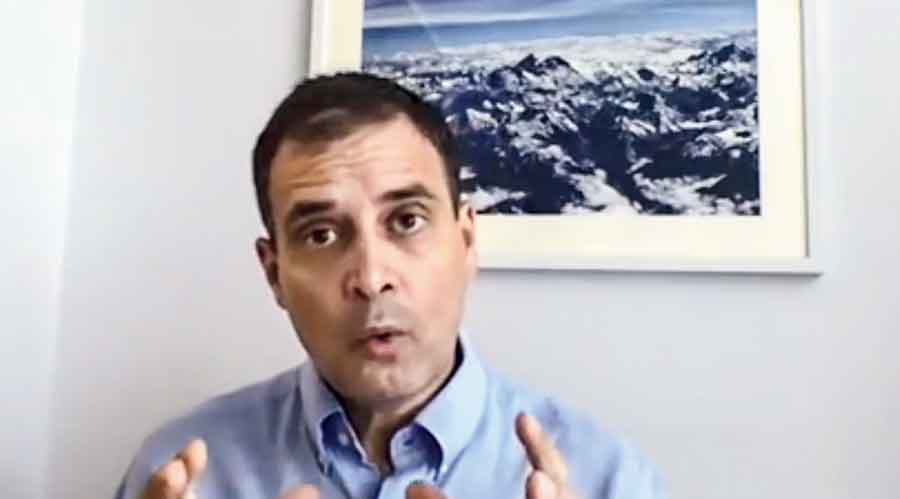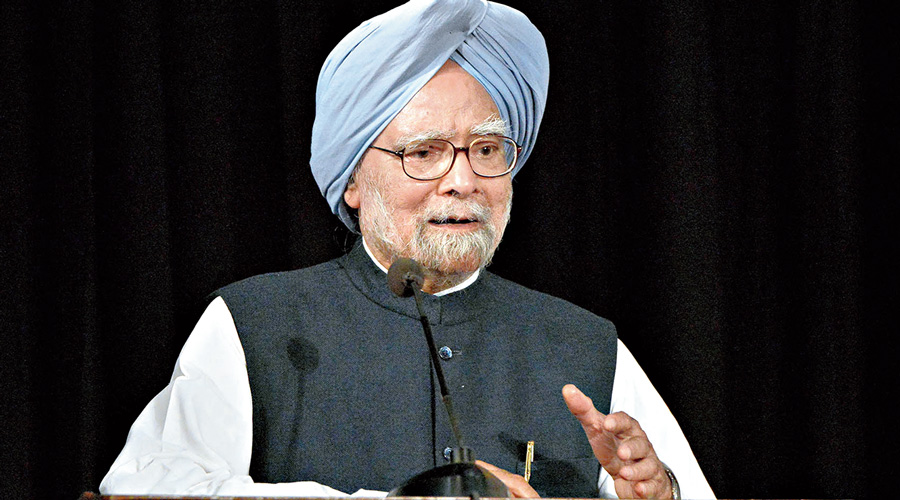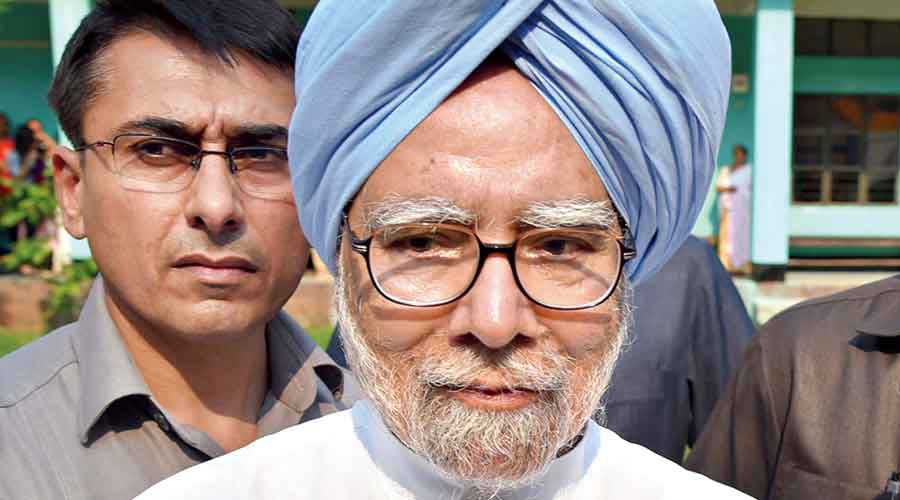Rahul Gandhi said on Tuesday that 90 per cent of those who died during the Covid-19 second wave could have been saved had the Narendra Modi government acted on reports warning of an oxygen crisis. The Congress MP demanded adequate compensation to the families of victims.
Responding to a question about the government’s submission in the Supreme Court that cited shortage of funds, Rahul told a virtual media conference: “I think the Centre is making Rs 4 lakh crore from taxes on diesel and petrol every year. It is taking money out of the pockets of people who have lost family members. So, I don’t understand why the government can’t put some money back into their pockets. It is not a question of some free gift that the government is giving; these families require this money, India requires these families to have money.”
Rahul added: “If they have lost a family member who used to be an earning member, what are they supposed to do? So, I am 100 per cent for a Covid compensation fund. I feel that there is no shortage of money because the government is taking money from people every day from petrol and diesel — Rs 4 lakh crore they have taken.”
He recalled the Congress’s demand for financial assistance, contending that Covid-19 was not merely a health crisis but also an economic and social phenomenon.
The Congress released a white paper on Tuesday on the government’s Covid management, which too insisted on compensation to the families who lost their members to the virus.
The white paper said: “Provide ex-gratia relief of at least Rs 4 lakh for all Covid-19 related deaths under the Disaster Management Act, 2005. Implement relief measures, including a minimum income support scheme for the poor and most vulnerable, continue free food supplies to the poor, reduce excise taxes on petrol and diesel, grant wage subsidies to micro, small and medium enterprises (MSMEs), increase budgetary support to the Mahatma Gandhi National Rural Employment Guarantee Scheme and provide relief for the urban poor.”
Although Rahul insisted that the purpose of the white paper was not finger-pointing, he said the government must understand what went wrong and learn from the mistakes, and this document would act as a valuable input.
Underscoring that the government didn’t take preventive steps before the second wave for which millions of people suffered, he said the third wave was inevitable and the country should be prepared for it. He said vaccination was the only solution and it should not be taken as a one-day event or a publicity gimmick.
In response to a question about the good work done by the government and the Prime Minister appearing to choke on tears while talking about Covid deaths that demonstrated his sincerity, the Congress leader said: “The needless deaths could have been prevented. The doctors and the experts believe most people died because of oxygen crisis. The Prime Minister’s tears cannot wipe the tears of the families who faced death. They know the Prime Minister didn’t help when they were struggling. The Prime Minister didn’t take oxygen supply seriously. His focus was different, he was busy fighting the election in Bengal.”
On a question about an instruction from the government to institutions to display messages thanking Modi for free vaccines through banners and posters, Rahul recalled the futile taali-thaali (clapping and beating utensils) exercise and said: “The Prime Minister was into marketing since the beginning. He claimed to have vanquished Covid and went for vaccine diplomacy when the country was suffering.”
The white paper offered exhaustive details of the government’s failures since the beginning, arguing that the pandemic could have been managed better.
Alleging that the mismanagement of the Covid-19 pandemic has been independent India’s gravest governance failure, the white paper pointed out that the Modi government ignored early warnings from experts and Opposition leaders and failed to learn from the lessons and response models of other countries which had been hit by the epidemic.
Contending that “hubris” and “political avarice” led the government to a disastrous path, the document said: “The government should have communicated better, acted on warnings of epidemiologists and virologists, decentralised resources, and empowered local authorities to arrest the spread of the virus.”
The white paper demanded: “Ensure that all Indians receive free vaccination in the shortest possible time frame. Collaborate with vaccine manufacturers, raw material suppliers, and foreign governments to ensure a steady supply of raw materials and vaccines for India. Invoke compulsory licence provisions under the Patents Act, 1970, to ramp up domestic vaccine production. Allocate vaccines to states based on a transparent, justifiable formula, centred on evidence, equity and particular local requirements. Make accurate vaccine-related and Covid-19 related data publicly available in a transparent manner.”
It added: “Implement political and administrative measures including a national level, all-party committee to review measures to contain the pandemic, to improve coordination with state governments, and to collaborate with civil society. Decentralise decision-making, management of critical resources and transfer funds to the district level to organise essential health services, from primary to tertiary care, and address regional imbalances. Prepare for possible third and future waves by heeding expert advice, scaling up testing significantly (especially in rural areas), and pooling human resources at the state and district levels.”













